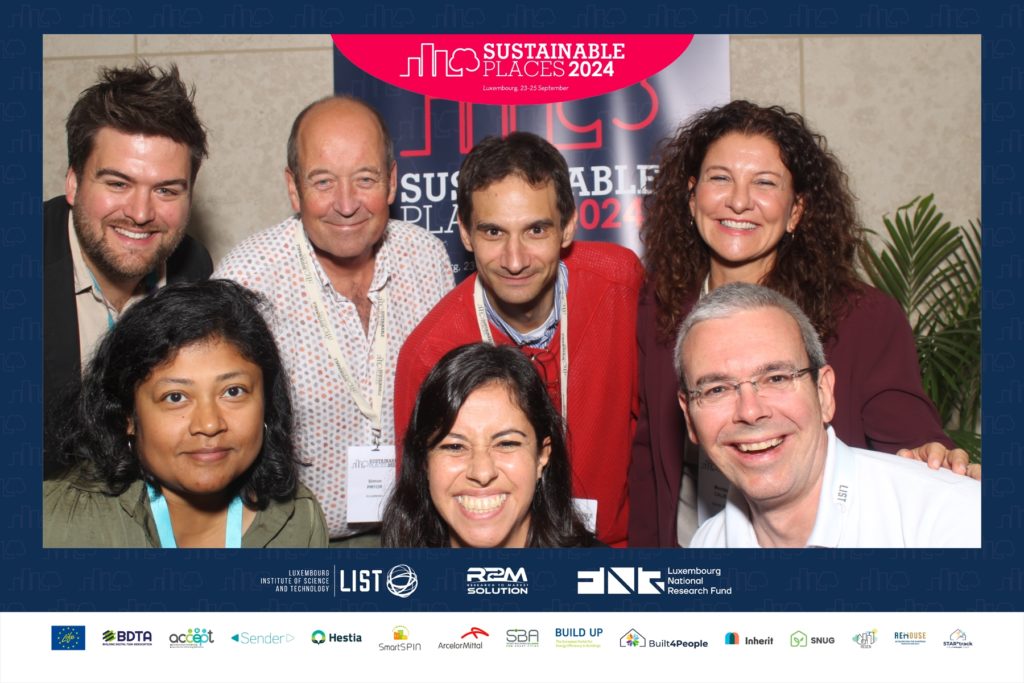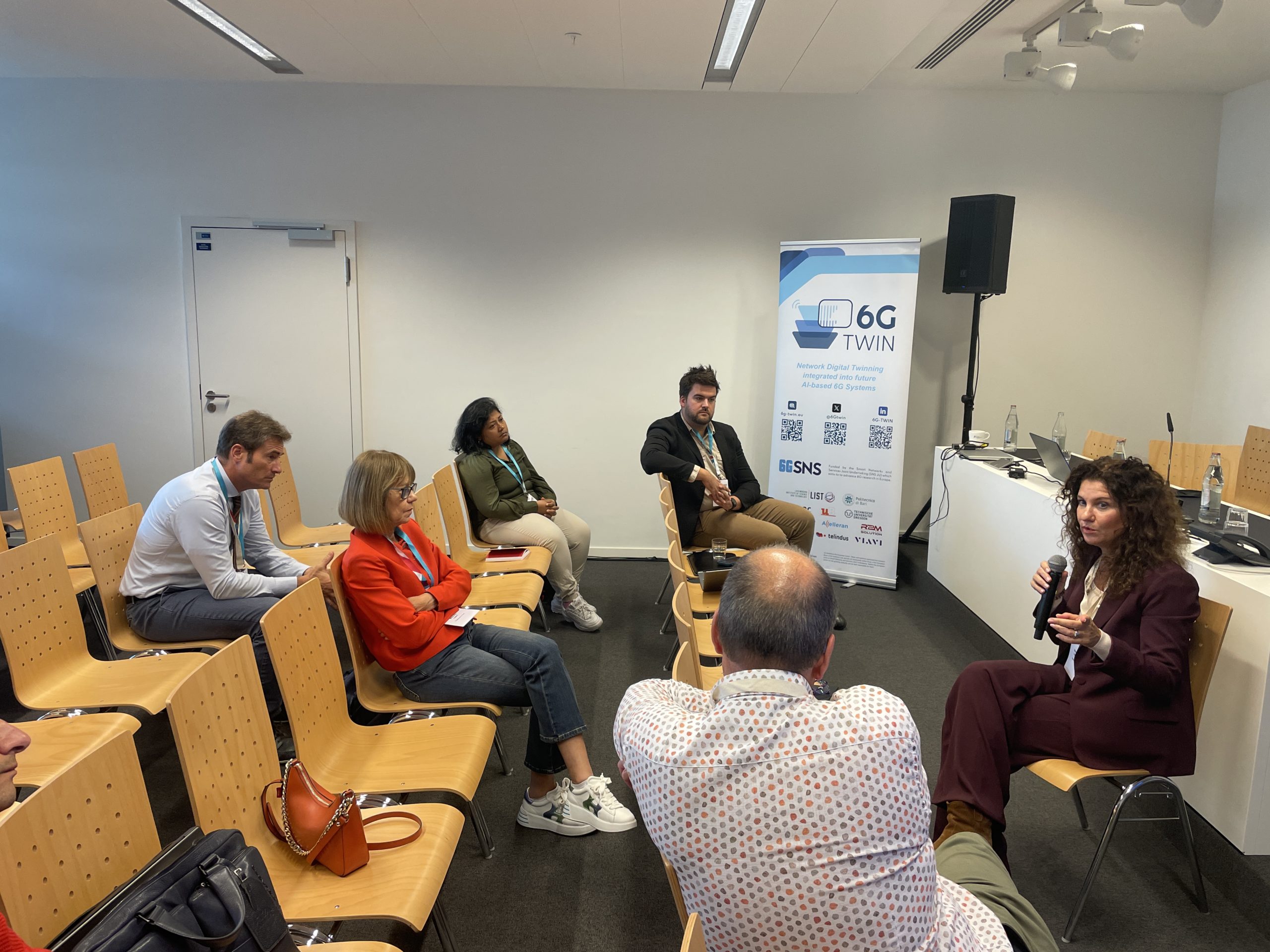The energy efficiency of future 6G mobile networks and the built environment are interconnected through various factors such as infrastructure deployment, network optimisation, smart technologies, and urban planning strategies. Efforts to improve energy efficiency in one area can positively impact the other, contributing to a more sustainable and environmentally friendly urban ecosystem.
6G-TWIN organised a workshop at the Sustainable Places conference (23-25 Sept. 2024, Luxembourg) which convened six other EU-funded projects to discuss and explore the intersection of sustainability and 6G mobile networks, addressing the pressing need to integrate environmental considerations into the design, deployment, and operation of future wireless communication systems.
The workshop was an excellent opportunity for the participants to discuss and benchmark their innovative approaches, green technologies, and holistic strategies for minimising the ecological footprint of next-generation mobile networks.
The contributing projects have agreed to continue their collaboration following the workshop. They will jointly publish an open letter in the event proceedings on Open Research Europe. Stay tuned for this publication, and the workshop recording will also be posted on this page soon.

A few words about each contributing project:
👉 6G4Society aims at providing and fostering a multidisciplinary and complementary perspective to future technological development, applying methodologies from ethics, legal and social sciences and humanities. The project was presented by Monique Calisti, CEO Martel Innovate.
👉 BeGREEN take a holistic view to propose evolving radio networks that not only accommodate increasing traffic and services but also consider power consumption as a factor. The project was presented by Simon Pryor, R&I Project Strategy at Accelleran.
👉 COALESCE aims to develop a cross-optimisation platform that enables integrated operation and interplay between the energy grids and the data and telecommunication networks. The project was presented by Indrakshi Dey, Head of Division – Programmable Autonomous Systems at Walton Institute.
👉 IN2CCAM advances and accelerates Connected, Cooperative and Automated Mobility (CCAM) technologies and services for seamless traffic management across Europe. The project was presented by Maria Pia Fanti, Full Professor in Control Systems Engineering at the Polytechnic University of Bari.
👉 CENTRIC proposes to leverage Artificial Intelligence (AI) techniques through a top-down, modular approach to wireless connectivity that puts the users’ communication needs and environmental constraints at the center of the network stack design. The project was presented by Francesco Malandrino, CNR, Italy.
👉 6Green aims to conceive, design, and realize an innovative service-based and holistic ecosystem, able to extend “the communication infrastructure into a sustainable, interconnected, greener end-to-end intercompute system” and promote energy efficiency across the whole 5/6G value-chain. The project was presented by Chiara Lombardo, Dottorato presso Università degli Studi di Genova.
👉 6G-TWIN will design, implement, and validate an AI-native reference architecture for 6G, using Network Digital Twins (NDT) to optimize, manage, and control dynamic network scenarios in real time. The project was presented by Sébastien Faye, 6G Technology & Innovation Line Manager @ Luxembourg Institute of Science and Technology (LIST).






Comments are closed